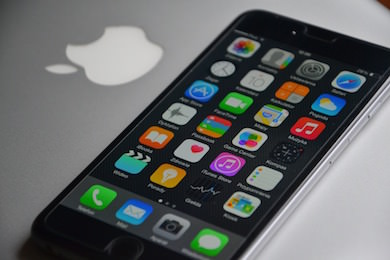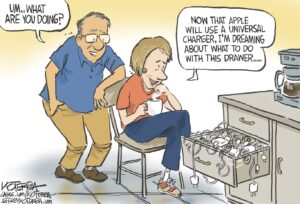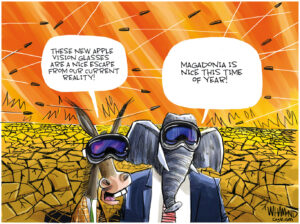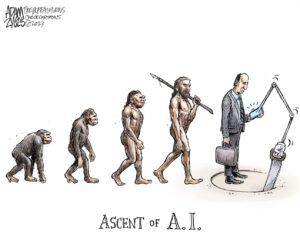FBI Says It May No Longer Need Apple’s Help to Unlock iPhone of Slain San Bernardino Killer
Round 1 of the legal battle between the Justice Department and the tech company may be over soon. A lawyer for the Electronic Frontier Foundation said the FBI "figured out another way in" to Syed Rizwan Farook's iPhone. (Pixabay)
A lawyer for the Electronic Frontier Foundation said the FBI "figured out another way in" to Syed Rizwan Farook's iPhone. (Pixabay)
The FBI has changed its tune. After weeks of arguing that it had no way to crack the iPhone 5C of slain San Bernardino killer Syed Rizwan Farook without Apple’s help, the government on Monday said it may have found a way to unlock the phone without Apple’s help, Wired reports.
The two sides were scheduled to fight in court again Tuesday, but on Monday the Justice Department filed an unexpected continuance motion on the hearing in Riverside, Calif.
The FBI hasn’t given up on accessing the data in Farook’s phone. But it now says it may not need Apple’s assistance to crack the device after all, which it had previously told a judge it could legally compel using the 1789 law known as the All Writs Act.
“On Sunday, March 20, 2016, an outside party demonstrated to the FBI a possible method for unlocking Farook’s iPhone,” the Justice Department’s lawyers wrote in a court filing. “Testing is required to determine whether it is a viable method that will not compromise data on Farook’s iPhone. If the method is viable, it should eliminate the need for the assistance from Apple … set forth in the All Writs Act Order in this case.”
Shortly after the government’s filing, the court approved the motion, canceling tomorrow’s [Tuesday’s] hearing. Instead, the Justice Department has asked for two more weeks to determine whether the method developed by that unnamed “outside party” is truly capable of unlocking Farook’s locked phone without altering its internal data. But the government’s move is already being interpreted as a decision to retreat from using the San Bernardino iPhone as the test case for whether tech companies can in fact be forced to help crack their own security measures.
The government’s move may be a signal that the San Bernardino legal battle is over and that Apple has won. While some believe the latest FBI decision was prompted by the vocal public backing for Apple, including amicus briefs filed in its support, most people don’t expect the encryption war to end anytime soon.
All along, Apple has said the Justice Department’s goal was to set a precedent that forced companies to help in future law enforcement cases involving demands for data access.
“The FBI figured out another way in, which we knew they had or could get if they really wanted,” Electronic Frontier Foundation lawyer Nate Cardozo told Wired. “They made a strategic decision to call off this one as the test case.”
Read the full Apple vs. FBI motion to vacate here.
—Posted by Eric Ortiz
Your support matters…Independent journalism is under threat and overshadowed by heavily funded mainstream media.
You can help level the playing field. Become a member.
Your tax-deductible contribution keeps us digging beneath the headlines to give you thought-provoking, investigative reporting and analysis that unearths what's really happening- without compromise.
Give today to support our courageous, independent journalists.









You need to be a supporter to comment.
There are currently no responses to this article.
Be the first to respond.